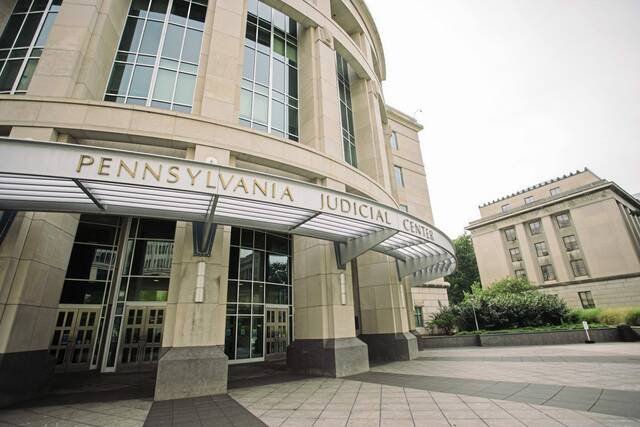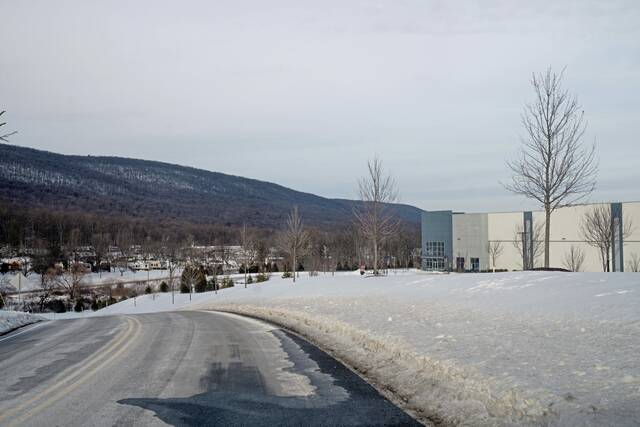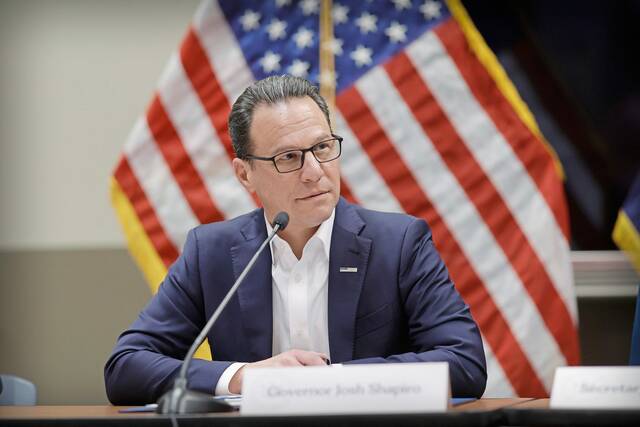With the death last week of Pennsylvania Supreme Court Chief Justice Max Baer, the state’s highest court is left with a vacancy that the Pennsylvania Constitution says must be filled.
The question now: Will Gov. Tom Wolf nominate someone during his last few months in office, or will he wait and allow the next administration to make the selection?
“It’s going to be a negotiation — whether it happens now or in January,” said Sara Grove, a political science professor at Shippensburg University of Pennsylvania.
The state Supreme Court’s next session is scheduled to begin Oct. 24 in Pittsburgh with 11 cases scheduled for oral argument.
The state Senate, which must vote on the nominee, has only seven more legislative session days before the end of the year, including Oct. 17-19 and Oct. 24-26.
“To get somebody through to sit for October is nearly impossible,” Grove said. “It could be one of the hesitations of Wolf.”
Early this week, a spokesperson for Wolf said the governor had not yet made a decision whether to appoint someone or wait until the next governor takes office.
Before Baer’s death, the political makeup of the court was split, 5-2, in favor of Democrats.
To be confirmed to the court, the nominee needs 34 votes from the state Senate, which is split 28-21 in favor of Republicans, with one independent.
“It has to be someone who can attract support across the aisle,” said Bruce Ledewitz, a law professor at Duquesne University.
If Democratic gubernatorial nominee Josh Shapiro wins in November, Ledewitz said he may be better able than Wolf to negotiate with Senate Republicans.
Grove said a likely strategy will be to pick a candidate who is more moderate and appeals to both sides.
Ledewitz and Grove suggested the candidate likely will come from one of the lower appellate courts and possibly already be sitting as a senior judge. Senior judges have reached Pennsylvania’s mandatory retirement age of 75 but continue to hear cases and get paid per day.
“It’s a little less political if you pick one of them,” Grove said.
In recent years, vacancies on the Supreme Court have been filled from the Superior and Commonwealth courts, though not with senior judges.
After the resignation of Justice Michael Eakin in March 2016, Wolf nominated then-Superior Court Judge Sallie Updyke Mundy to fill the position in June of that year. She was confirmed two weeks later by the state Senate.
In 2013, after the criminal court conviction of state Supreme Court Justice Joan Orie Melvin, Gov. Tom Corbett nominated Superior Court Judge Correale Stevens to replace her.
Historically, part of the negotiations in selecting a nominee is to get the nominee’s assurance they will not seek to run for the open seat — although that was not the case with Mundy or Stevens.
In elections after their appointments, Mundy ran and won in 2017 and Stevens ran and lost in the primary in 2015.
The vacancy created by Baer’s death will be on the 2023 ballot, which means whoever fills it will serve only until January 2024.
“You’re putting someone on for a year, not a federal lifetime appointment,” Ledewitz said. “It seems, to me, there’s hardly any reason to wait.”
He and Grove think it’s important to fill the vacancy quickly.
“They can function with the six. That’s not going to stop their argument calendar,” Grove said.
But having the potential for 3-3 rulings is not ideal, she continued.
Although a tie vote on a decision serves practically as affirming a lower court’s decision, it does not hold the same weight or value as a majority opinion, she said. It means the Supreme Court has not taken a position on an issue, and so it will likely have to be raised again in the future.
“That’s not good for justice,” said Grove, who previously clerked for the state Superior and Supreme courts. “It doesn’t resolve anything.
“(Majority) decisions have more precedential value, and that’s why they matter more.”
Former state Supreme Court Chief Justice Ronald Castille once said in a speech that a 3-3 decision on the court is “meaningless.”
“As someone who wants to see the institution of the Supreme Court retain its legitimacy, you have to move past the 3-3,” Grove said.








